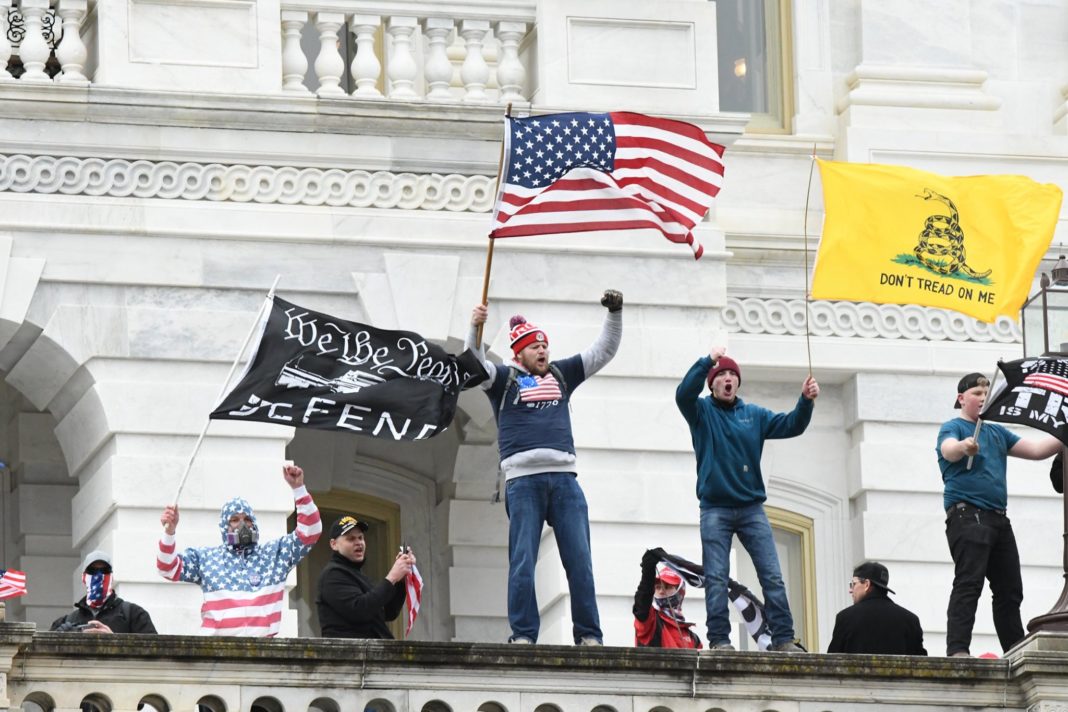Today, the U.S. Supreme Court ruled 6-3 in Fischer v. United States that the U.S. government interpreted an evidence destruction law too broadly in charging January 6defendants with a felony obstruction charge for entering the U.S. Capitol on January 6, 2021. The High Court’s decision sends the case back to the D.C. Court of Appeals to assess whether indictments can still stand under the narrower interpretation of the law. Liberty Counsel filed an amicus brief in this case because of the significant First Amendment implications.
This is a BIG WIN. The High Court adopts Liberty Counsel’s interpretation of Section 1512, that it is only an evidence destruction provision and nothing more. The High Court likewise adopts Liberty Counsel’s argument that interpreting Section 1512 to criminalize more than mere evidence destruction would criminalize protesting and lobbying.
The High Court holds that to prove a violation of the law, the government must show that the defendant impaired the availability or integrity of records, documents, objects, or other things used in an official proceeding, or attempted to do so.
This question in the case was whether a federal “document-shredding prohibition” can be used to charge January 6 defendants with “corruptly” obstructing an official proceeding, namely the joint session of Congress that was convened and later recessed on January 6 to certify the 2020 election. The question comes to the court in the case of a former Pennsylvania police officer who entered the Capitol on Jan. 6.
Chief Justice John Roberts authored the majority opinion.
“Nothing in the text or statutory history suggests that subsection (c)(2) is designed to impose up to 20 years’ imprisonment on essentially all defendants who commit obstruction of justice in any way and who might be subject to lesser penalties under more specific obstruction statutes,” wrote Chief Justice Roberts. “If Congress had wanted to authorize such penalties for any conduct that delays or influences a proceeding in any way, it would have said so. Instead, Section 1512 mentions “record,” “document,” or other “object” 26 times.”
“Given that subsection (c)(2) was enacted to address the Enron disaster, not some further flung set of dangers, it is unlikely that Congress responded with such an unfocused and “grossly incommensurate patch,” continued Chief Justice Roberts. “We therefore decline to adopt the Government’s interpretation, which is inconsistent with ‘the context from which the statute arose.’”
The Court said that the government’s “novel interpretation would criminalize a broad swath of prosaic conduct, exposing activists and lobbyists alike to decades in prison. As the Solicitor General acknowledged at oral argument, under the Government’s interpretation, a peaceful protester could conceivably be charged under §1512(c)(2) and face a 20-year sentence. And the Government would likewise have no apparent obstacle to prosecuting under (c)(2) any lobbying activity that ‘influences’ an official proceeding and is undertaken ‘corruptly.’ Those peculiar results ‘underscore[] the implausibility of the Government’s interpretation.’”
The case hinged on how two parts of the obstruction law work together. The law in question is Section 1512(c) of the 2002 Sarbanes-Oxley Act, a “document-shredding prohibition” which grew out of the collapse of the Enron Corporation. Fischer contends the federal government is exceeding the scope of Section 1512(c), in which the first part makes it a crime to fraudulently destroy corporate financial records. Specifically, the law makes it a felony to corruptly alter, destroy, mutilate, or conceal a record, document, or other object with the intent to undermine an official proceeding. The second part of the statute applies to anyone who “otherwise obstructs, influences, or impedes any official proceeding.” The law authorizes up to a 20-year prison sentence for violators. At this point, the Justice Department had used the law to chargenearly 330 individuals, including President Donald Trump, for obstruction of Congress.
Liberty Counsel filed an amicus brief to the High Court in the case and argued that Section 1512(c) was being used in an unprecedented manner to “criminalize large swaths of constitutionally protected expression” which ran “roughshod over the First Amendment.” The brief stated the reason for the unprecedented application of Section 1512(c) was due to “prosecutors running amok” because they detested the “speech, assembly, and expression” of the people who aimed to influence their elected representatives on January 6.
The brief concluded stating the Circuit Court’s “untethered interpretation” of this law and the Justice Department’s “selective prosecution” of January 6 defendants under it “runs afoul” of the U.S. Constitution.
Liberty Counsel Founder and Chairman Mat Staver said, “The Sarbanes-Oxley Act has nothing to do with the events of January 6and this new narrow interpretation will make it difficult for these indictments to stand. The First Amendment does not permit the government to make political expression, assembly, or petitioning the government into criminal acts.”
















